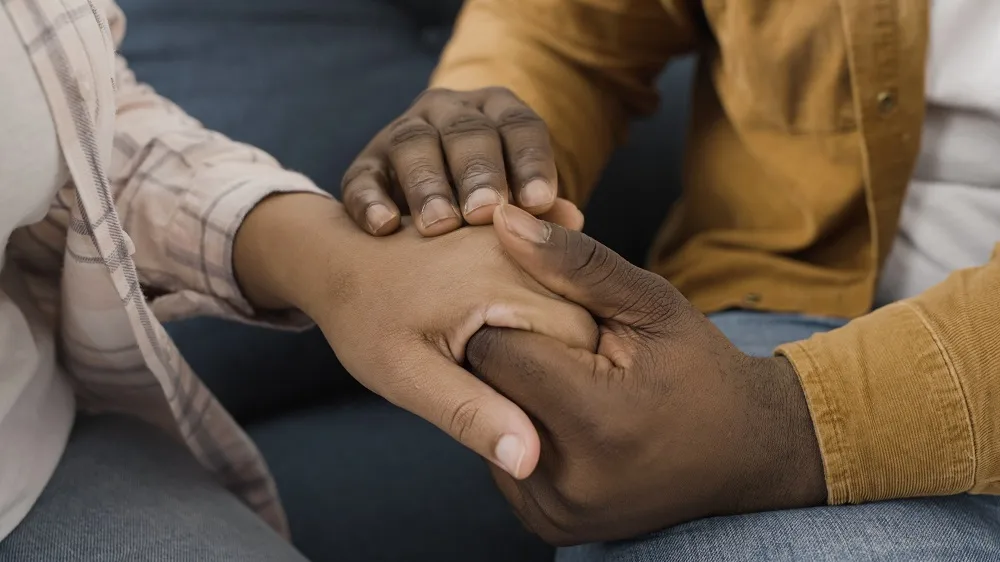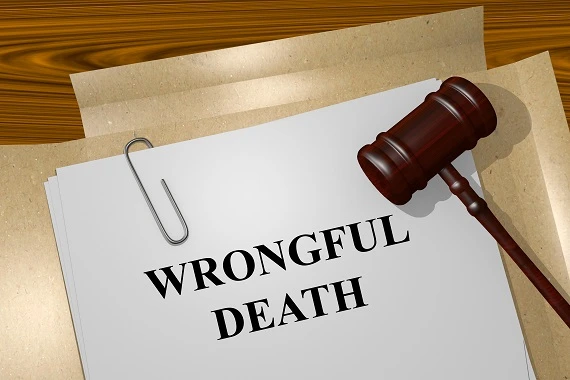How Are Wrongful Death Settlements Paid Out?
Losing a loved one because of someone’s negligence is devastating, leaving families not only grieving but also facing an uncertain future. In the midst of that pain, questions about financial security, justice, and how to honor the memory of the person you lost can feel overwhelming. A wrongful death settlement can never bring them back, but it can help provide stability, protect their legacy, and ensure your family is cared for in the years ahead.
.avif)
As experienced and compassionate personal injury attorneys in West Palm Beach, we’re here to help you understand how these settlements are paid out and how they can bring some measure of peace during a heartbreaking time.
What Qualifies as a Wrongful Death Case?
A wrongful death settlement is a financial agreement between the deceased person's estate and the responsible party that resolves a legal claim without going to trial. These settlements compensate surviving family members for financial and emotional losses resulting from their loved one's death.
Under Florida Statute §768.19, a wrongful death occurs when someone dies due to the "wrongful act, negligence, default, or breach of contract" of another party. Common scenarios that may qualify for wrongful death claims include:
- Auto accidents (car, truck, motorcycle, pedestrian)
- Medical malpractice
- Defective products
- Workplace accidents
- Slip and fall incidents
- Nursing home neglect
- Criminal acts
For a wrongful death claim to be valid, the deceased person's representative must prove that the defendant's negligent or intentional actions directly caused the death and resulting damages. At South Florida Justice, our attorneys meticulously gather and present this crucial evidence to establish clear liability in every wrongful death case we handle.
You Deserve Answers — We Help You Find Them
Don't let wrongful death settlement confusion add to your grief and stress. Contact South Florida Justice today for a free consultation and discover how we can maximize your family's compensation while you focus on healing.
Secure Your Family’s Financial Future
Available 24/7
(561) 659-8337
Who Can Receive Compensation in Florida Wrongful Death Cases?
Florida's Wrongful Death Act specifies that while only the personal representative of the deceased's estate can file the lawsuit, the compensation is intended for specific surviving family members.
Eligible beneficiaries typically include:
Primary Beneficiaries
- Spouse: Receives highest priority and typically at least 50% of the settlement when children are involved. Can claim both economic losses and non-economic damages, like loss of companionship.
- Children: Minor children (under 25) receive priority over adult children. All children can claim loss of parental guidance, though minors' claims are valued higher due to their dependency.
- Parents: Parents cannot recover damages if the decedent was married or had children. Parents can recover damages for deceased minor children and for adult children who die without a spouse or children.
Additional Eligible Dependents
- Children born outside marriage: These children have equal rights to recovery as children born within marriage for maternal relationships. For paternal relationships, they must establish that the father acknowledged responsibility and provided support.
- Adopted children: Florida law treats adopted children identically to biological children for wrongful death compensation purposes.
- Blood relatives: Siblings, grandparents, or other blood relatives may recover damages if they were financially dependent on the deceased. They must provide evidence of regular financial support and dependency.
- Household dependents: Individuals who lived in the deceased's household and relied on them for financial support or care may qualify for compensation even without a blood relationship. They must demonstrate their dependency and the impact of the loss.
Types of Damages Available in a Florida Wrongful Death Claim
Florida law recognizes several categories of damages in wrongful death settlements, which determine how compensation is distributed.
Economic Damages
These damages compensate for the measurable financial losses resulting from a wrongful death, providing critical support to survivors who depended on the deceased's income and services. They include:
Medical Expenses

Costs for emergency care and treatment related to the fatal injury or illness. This includes ambulance services, emergency room treatment, hospitalization, surgeries, medications, and any specialized care received before death. These expenses must be directly related to the injuries that led to the death and are typically verified through medical records and billing statements.
Funeral and Burial Costs
Reasonable expenses for funeral services and interment. This includes costs for the funeral ceremony, casket, burial plot or cremation services, headstone, obituaries, and associated funeral home fees. Florida courts generally consider these necessary expenses and allow for full compensation of reasonable costs documented by receipts and invoices.
Lost Income and Support
The value of wages, benefits, and financial support the deceased would have provided to survivors. This calculation includes the deceased's salary, projected raises, bonuses, retirement benefits, and other income that beneficiaries would have received. Economic experts often testify regarding future earning capacity based on the deceased's age, education, skills, and career trajectory.
Lost Services
The value of household services that the deceased would have contributed, such as childcare, home maintenance, and transportation. These damages compensate for the monetary value of services the deceased performed that now must be hired out or performed by others. This includes cooking, cleaning, yard work, home repairs, and other domestic contributions that have economic value.
Lost Inheritance
The value of assets that the deceased would likely have accumulated and passed on to survivors. This calculation considers the deceased's saving and investment habits, financial management skills, and expected career advancement. Economic experts project what portion of the deceased's earnings would have become inheritance for survivors had they lived a normal life expectancy.
Non-Economic Damages
While economic damages address financial losses, non-economic damages compensate for the emotional and relationship impacts of a wrongful death. These recognize that a person's value extends far beyond their monetary contributions:
Loss of Companionship
The value of the deceased's companionship, protection, and guidance. This compensates survivors for the absence of their loved one's physical presence, affection, and emotional support. For spouses, this includes the loss of intimacy and marital relationship.
Mental Pain and Suffering

Emotional distress experienced by survivors (Florida limits this for certain family members). This includes grief, sorrow, depression, anxiety, and psychological trauma resulting from the sudden loss. While Florida law allows all qualifying survivors to claim these damages, recovery may be restricted for certain family members, like adult children, when the deceased was married at the time of death.
Loss of Parental Guidance
Children's loss of their parents' instruction and guidance. This compensates for the absence of a parent's moral, educational, and practical guidance throughout childhood and beyond. Courts especially consider how young children will grow up without their parents' advice, direction, and involvement in important life decisions and milestones.
Punitive Damages
In cases involving gross negligence or intentional misconduct, punitive damages may be awarded to punish the wrongdoer. These damages are less common and are subject to statutory caps in Florida.
How Are Wrongful Death Settlements Paid Out?
Wrongful death settlements can be distributed through several methods, each affecting how quickly families receive funds and how those funds are managed:
Lump Sum Payment
Most settlements are paid as a single lump sum, giving beneficiaries immediate access to all funds. This provides maximum flexibility for paying debts, investing, or meeting immediate financial needs. The personal representative then distributes funds to eligible survivors according to the settlement agreement and Florida law.
Structured Settlement
Some wrongful death settlements are structured to provide payments over time through an annuity. This arrangement may offer tax advantages and ensure long-term financial security, particularly for surviving minor children.
Combination Approach
Many settlements combine different methods, with a portion paid as an immediate lump sum to cover pressing expenses and the remainder structured for long-term financial security. This hybrid approach addresses both immediate and future needs.
Trust Funds
For settlements involving minors or beneficiaries with special needs, funds may be placed in managed trusts. These protect from mismanagement while ensuring the funds are used appropriately for the beneficiary's care, education, or other needs.

The personal representative is responsible for:
- Paying any outstanding medical bills related to the final injury or illness
- Covering funeral and burial expenses
- Distributing remaining funds to eligible survivors
- Filing necessary tax documents
Factors That Impact Wrongful Death Settlement Amounts
Several key elements determine your potential compensation after losing a loved one to negligence. These factors influence how insurance companies, courts, and attorneys value wrongful death claims:
- Liability evidence: Police reports, witness statements, expert testimony, surveillance footage, and medical documentation establishing clear causation between negligence and death.
- Age and life expectancy: Younger victims with longer life expectancies typically result in higher compensation for lost future earnings and contributions.
- Income and financial support: Higher-earning individuals generally yield larger settlements due to the greater financial impact on dependents.
- Dependent survivors: Claims involving young children who lost parents or dependent spouses in long-term marriages typically receive substantial compensation.
- Insurance coverage: Policy limits may cap recoverable amounts unless multiple policies apply or the defendant has significant personal assets.
- Legal representation: Studies show that represented families receive significantly higher settlements than unrepresented ones, even after attorney fees.
Wrongful Death Statute of Limitations
In Florida, wrongful death claims must be filed within two years of the date of death in most cases. Failing to file within this period typically results in the case being dismissed, regardless of its merits.
Some exceptions that may extend this deadline include cases involving fraud or concealment, cases against government entities (which may have shorter notice requirements), and medical malpractice cases (which may have different timing rules).

Your Family Deserves More Than Sympathy: Demand Justice After a Wrongful Death!
When negligence takes a loved one, the responsible parties owe more than apologies. Your family faces real financial and emotional hardships that deserve proper compensation.
Reach out to our team today to schedule a free consultation with our seasoned WBP attorneys. We'll handle the legal battle while you focus on healing and honoring your loved one's memory.

Mac Kenzie Sacks
Recent Legal News & Insights
This section features recent articles on various legal topics, as well as practical advice from experts.

What Are the Most Common Crimes in Florida?
Have you encountered criminal charges in Florida? You need to understand your options. Our WPB defense attorneys offer free consultations to protect your rights.

How Are Wrongful Death Settlements Paid Out?
Lost someone to negligence? Learn how Florida wrongful death settlements are paid out and divided. Get help from our compassionate WPB wrongful death attorneys.

How to Get Drug Possession Charges Dropped: Effective Strategies to Follow
Facing Florida drug charges? Learn 8 proven strategies to fight your case. Get immediate legal help and a free case review from WPB defense attorneys.
FAQ About Wrongful Death Settlements
Is there an average wrongful death settlement amount?
There is no true average settlement amount for wrongful death cases in Florida. Each case is valued based on unique factors, including the deceased's age, earning capacity, family circumstances, and the negligent party's liability.
What challenges might arise when receiving a wrongful death settlement?
Insurance disputes, inadequate settlement offers, beneficiary disagreements, healthcare liens, court approval delays for minors, and complex multi-defendant cases can all complicate and delay the settlement process. Our experienced WPB wrongful death attorneys anticipate and resolve these issues efficiently.
Can I still pursue a claim if my loved one was partially at fault?
Yes. Florida follows comparative negligence rules, meaning you can still recover damages even if your loved one was partially responsible, though their percentage of fault will reduce compensation.
Are wrongful death settlements taxable?
Most wrongful death settlements are not taxable under federal law. However, punitive damages and interest earned on the settlement may be taxable. Consult with our wrongful death lawyers for guidance specific to your situation.
How long after the settlement until beneficiaries receive payment?
Most settlements are paid within 30-60 days after the agreement. Delays may occur with minors' settlements requiring court approval, beneficiary disputes, healthcare liens, or structured settlement arrangements.
Can I negotiate a wrongful death settlement without an attorney?
Insurance companies typically offer much less than the cases are worth to unrepresented families. Our team will navigate the complex settlement process and fight to maximize your recovery. For a free consultation on your wrongful death case, call us at (561) 659-8337.


.svg)

.svg)

.svg)